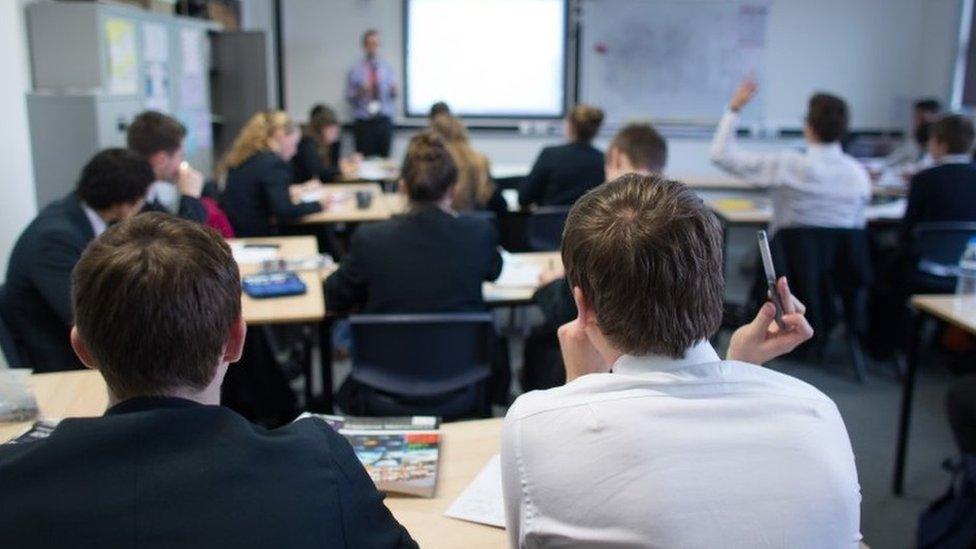Sex education classes could be compulsory in Wales
- Published
Some parents have already been speaking out about the plans
Parents are set to lose their right to remove their children from sex and relationship classes under Welsh Government plans.
Education Minister Kirsty Williams said she was also "minded to" abolish the right to remove children from religious education (RE) lessons.
The plan will be put to an eight-week consultation.
In a previous consultation, 89% of respondents backed the right of parents to take children out of the classes.
But Ms Williams said it had always been an "anomaly" that pupils could be withdrawn from certain subjects.
The proposed measure will be brought in along with the new curriculum, which will be introduced in primary schools and the first year of secondary in 2022, before being rolled out up to 16-year-olds in 2026.
The Welsh Government is also proposing to change the name of religious education to "religions and world views" to include non-religious perspectives.
The revised approach for relationships and sexuality education (RSE) will be "fully inclusive of all genders and sexualities and meets the needs of LGBTQI+ learners", Ms Williams has previously said.
It will place an emphasis on forming and maintaining healthy, happy and fulfilling relationships, giving pupils a much broader understanding of sexuality.
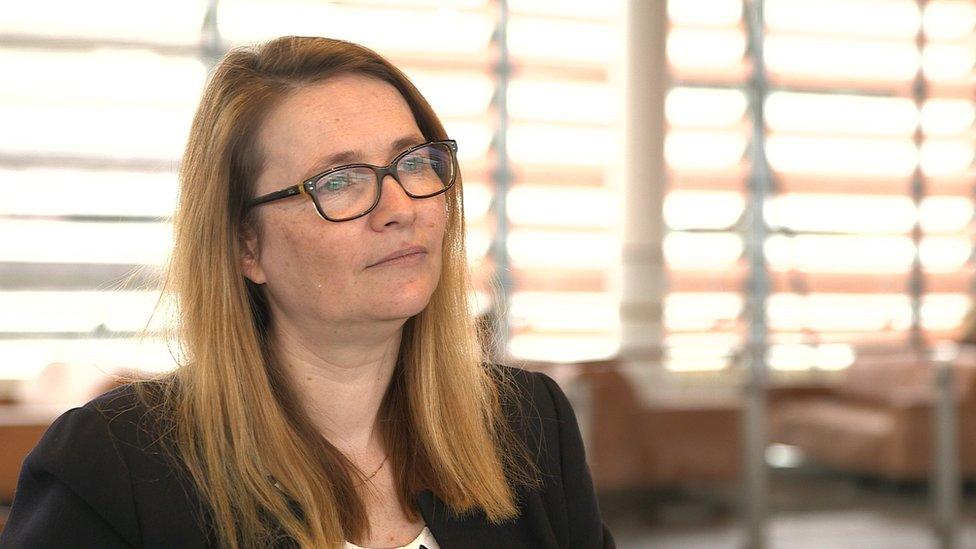
Education Minister Kirsty Williams said all lessons would be "developmentally appropriate"
Ms Williams said all teaching would be developmentally appropriate and parents would be kept informed about what they were learning.
"I am minded to ensure all pupils study RE and RSE in the new curriculum, just as they will study science, maths and languages," she said.
"Children should be provided with access to information that keeps them safe from harm and allows them to navigate the world in which we live…
"It must be easy for parents to engage in dialogue with schools about this and other parts of the curriculum."

Abdul-Azim Ahmed is concerned it is unclear what exactly will be on the relationship and sexuality education curriculum
Sian Rees, director of the Evangelical Alliance in Wales, said they wanted parents to retain the right to take their children out of RSE lessons.
"We believe that age isn't an indication of maturity and that these conversations are conversations that should perhaps be occurring within the home," she said.
"The [new curriculum] framework as it stands is very vague. We would ask the minister to provide more clarity and explanation as to what exactly she would like teachers to cover."
Abdul-Azim Ahmed, deputy general secretary of the Muslim Council of Wales, said it was important to maintain trust between parents, the state and schools.
"A move that withdraws the right for parents to withdraw their children may undermine that trust," he said.
"[With religious education] there's a well-established curriculum... so removing the right to withdraw there may be less controversial because parents know what's anticipated.
"That's less clear when it comes to relationship and sexuality education where the guidance is still being developed."
On Monday, the Welsh Government's advisers on domestic violence said lessons about sexuality and relationships should be compulsory in schools.
Teaching on issues related to relationships and sex is usually delivered through personal and social education, which is part of the curriculum for seven to 16 year olds.
Younger children are taught about relationships as part of the foundation phase.
All secondary schools are required by law to provide the sex education element to pupils, and primary schools can teach it if they wish.
What do parents say?
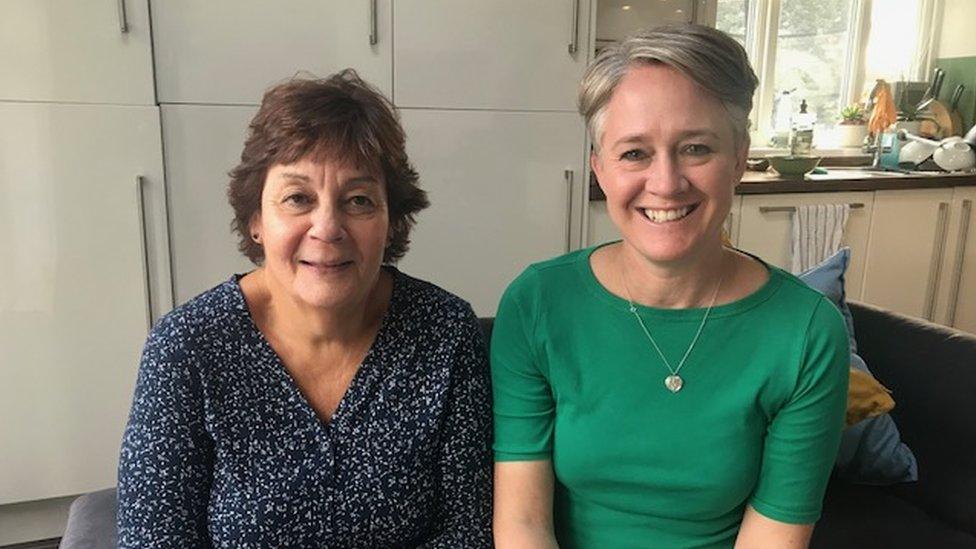
Jane Cope (L) and Sarah Day (R) both think sex education is important in schools, but that parents should still have the right to choose if their children take part
Jane Cope, a mother of two teenage children from Caerphilly, said: "I don't feel that it should be mandatory that all children should have to attend [sex education], but it should also perhaps be provided to those children in a safer zone with somebody from their own culture that can speak to the children."
Sarah Day, who has three children, said: "I think that part of the curriculum is just as important as maths, science, English, IT. It's part and parcel of how we live our lives.
"It should most definitely stay, it's how the school engages with parents who may have an issue with their child accessing that part of the curriculum."
- Published27 March 2019
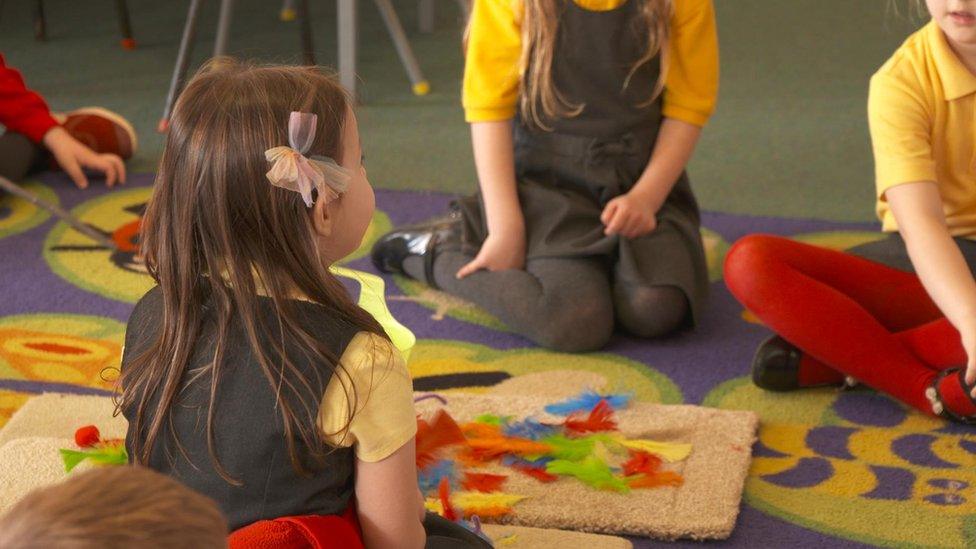
- Published22 May 2018
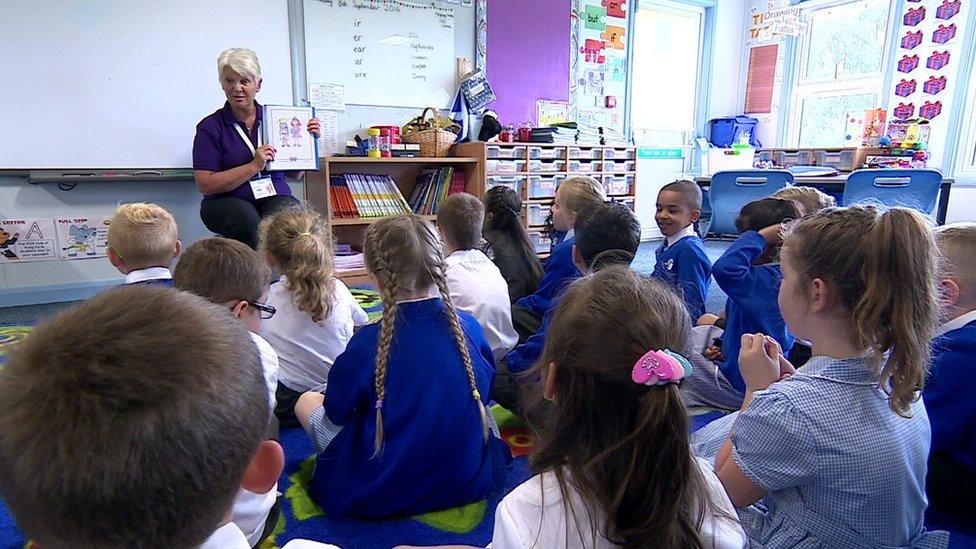
- Published30 September 2019
